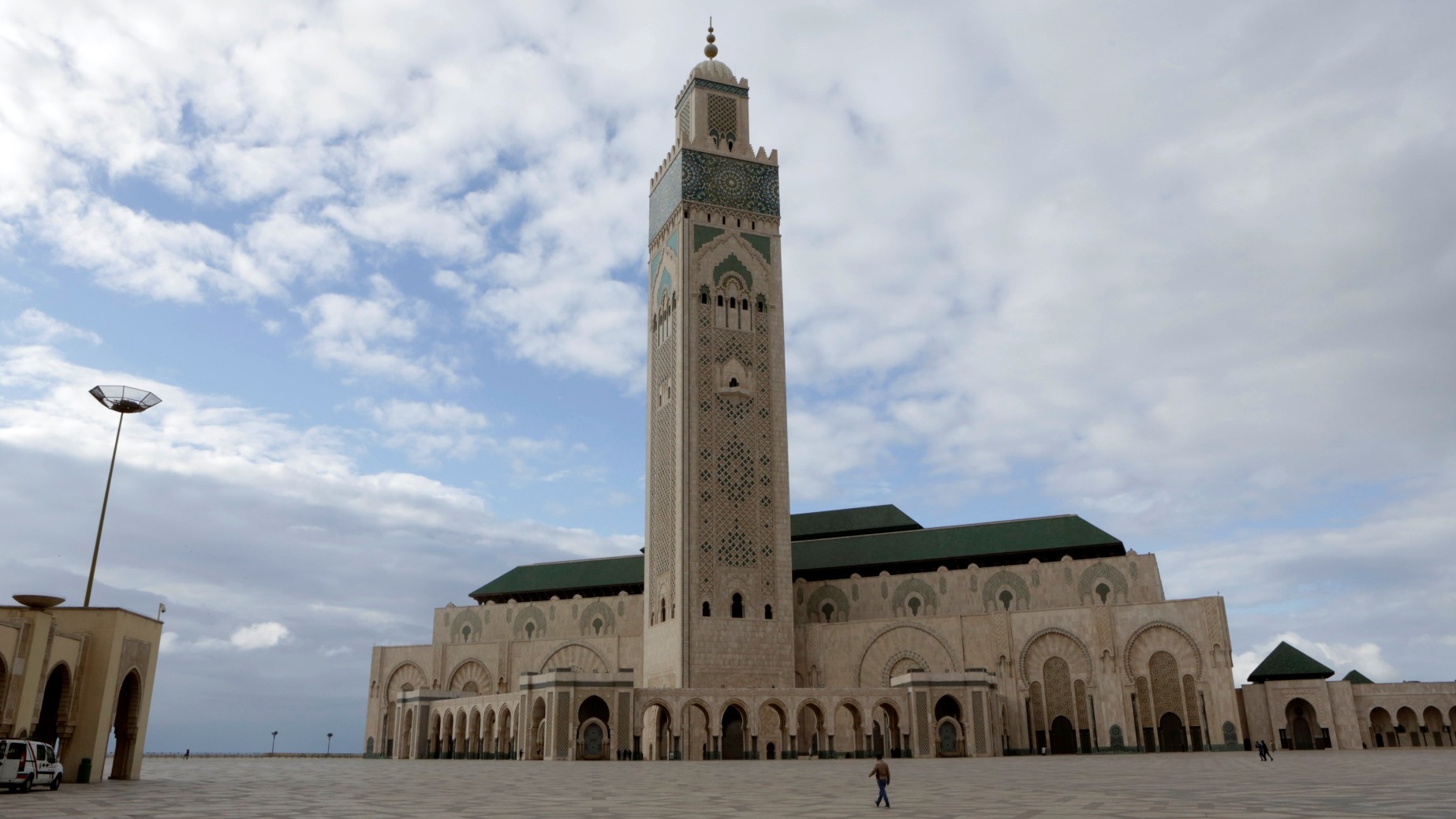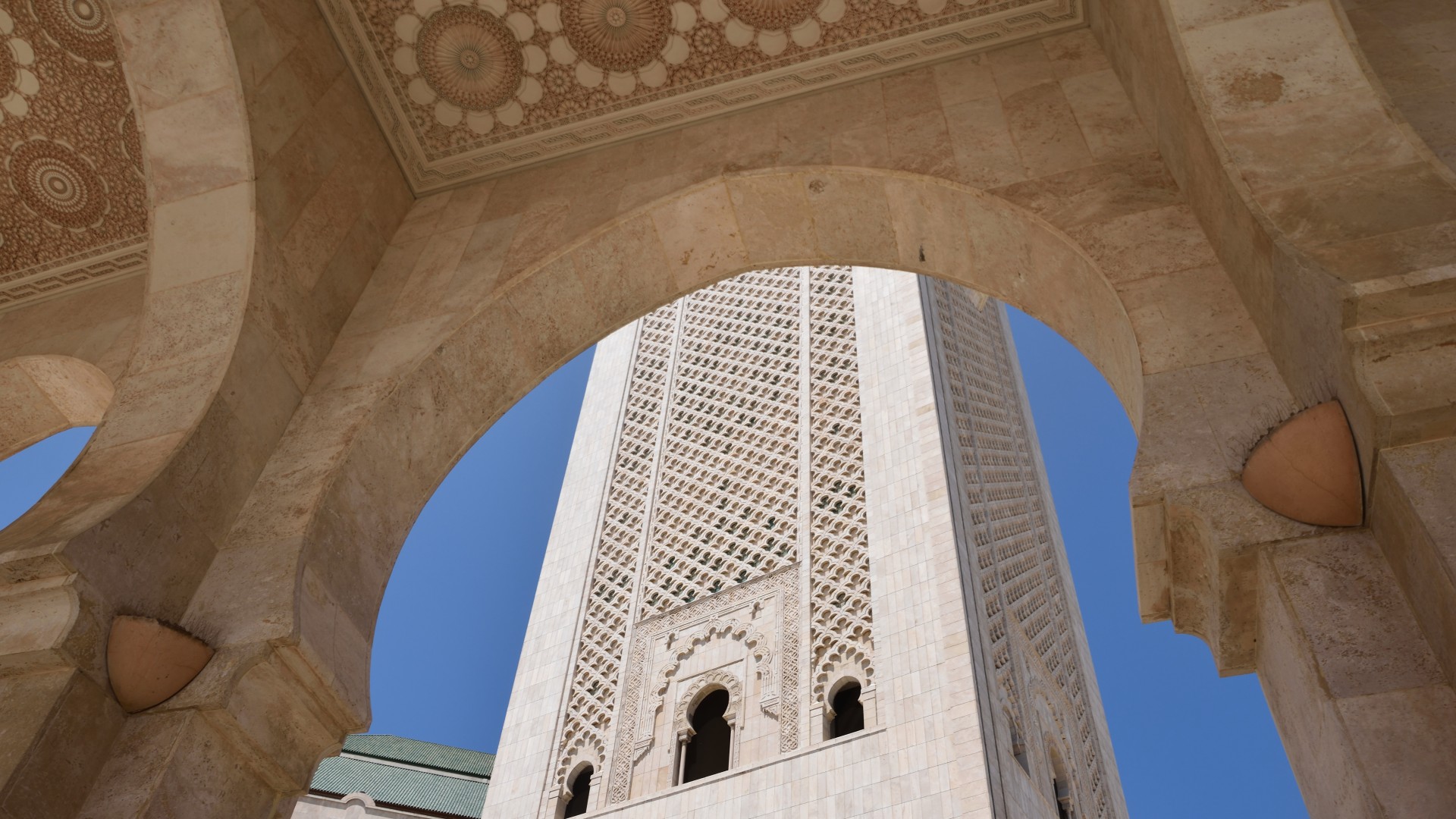Young Moroccans are turning away from mosques over Gaza silence

For nearly a decade, whenever the call to Isha prayer has rung out, Abdul Ahad* has made a beeline for the front row at his local mosque, in particular the "sweet spot" just to the right of the imam.
Praying in the first saff (row) is an extremely rewardable act in Islam, he says, and performing congregational prayers in such a place during the holy month of Ramadan is even more so in the sight of God.
But this year, the 27-year-old says his prayer routine has changed drastically - and it's not because of a crisis of faith.
Since the war in Gaza erupted, Abdul Ahad, like many other young Moroccans, has been outraged by his country's reluctance to condemn Israel's deadly offensive, which has claimed more than 32,000 lives and displaced nearly all of the enclave's population.
Anger, he says, has also grown against the religious establishment over its refusal to express support for those suffering in Gaza and engage in one of the easiest forms of solidarity: prayers and supplication.
Stay informed with MEE's newsletters
Sign up to get the latest alerts, insights and analysis, starting with Turkey Unpacked
"We're witnessing a shocking betrayal by our imams," Abdul Ahad told Middle East Eye.
"They're supposed to stand against tyrants and their oppression, not with them. Especially now, especially during these last 10 days of Ramadan."
For the past six months, sermons across Morocco have largely dodged the issue of the war, while some have focused on interfaith unity and commonality with the Jewish community - once an anathema to the kingdom's religious apparatus.
Anger has also risen steadily over imams using their pulpits to praise, sanctify and defend King Mohammed VI and his government, while protests, once a rare occurrence in the North African nation, have become a near-daily affair due to Morocco's normalisation agreement with Israel.
'We're witnessing a shocking betrayal by our imams. They're supposed to stand against tyrants and their oppression, not with them'
- Abdul Ahad, 27
For decades, sermons at the Hassan II Mosque in Casablanca have been largely apolitical and centred around piety and morality. They always conclude with a prayer for the king and a warning that the rulers should be obeyed only to the extent that they obey God.
But for Abdul Ahad, there was a time when mosques at least referenced the plight of Muslims, especially the ongoing occupation of Palestinian lands.
The "deafening silence" over the war and resulting raids on Al-Aqsa Mosque, he says, have resulted in many walking away from places of worship during the holy month.
"It's too much to bear. I now head to the mosque only for [the obligatory] Friday prayers. Every other prayer I perform at home. How can I pray behind someone who doesn't have the spine to condemn a genocide? I can't. I'd rather pray at home."
'Commander of the Faithful'
Reigning over Morocco since 1999, King Mohammed VI retains complete control over the armed forces, foreign policy, the judiciary and matters pertaining to religion.
While the country is officially a constitutional monarchy, in reality the government acts as little more than the king's executor and a buffer to criticism.
Wearing the title of Commander of the Faithful, an historic description used nowhere else today, Mohammed VI's claim is based on Morocco's 'Alawi dynasty being direct descendants of the Prophet Muhammad.
Morocco's Arab and Berber communities have historically owed allegiance to the Prophet Muhammad's clan, the Hashemites, in part due to this religious lineage.
Their support has been essential for the survival of the 'Alawi dynasty, but many young Moroccans, who spoke to MEE on condition of anonymity, said the king's erratic behaviour, notable absence from the country and the 2020 normalisation agreement with Israel have left them feeling marginalised and disaffected.
"Not once has the king spoken to us about the path Morocco will take in the war and whether he will reverse [the] normalisation [agreement with Israel]," Azzedine*, a 23-year-old vendor, told MEE.
'At the mosques, it's as if… Morocco doesn't have a role to play in ending the genocide. We do, and we must'
- Azzedine, 23
"And at the mosques, it's as if everything is going well in the world and Morocco doesn't have a role to play in ending the genocide [in Gaza]. We do, and we must."
Critics have said the makhzen, a term Moroccans use to refer to the king and powerful courtiers and security agencies, have been deliberately coy about how to address mounting anger over Rabat's normalisation agreement with Israel.
Aziz Chahir, an associate researcher at the Jacques-Berque Center in Rabat, told MEE that because of widespread public dissatisfaction over the war, the Moroccan government was juggling the "entangled political realities of the Gaza-Israel crisis, while simultaneously preserving its precious normalisation agreement".
"We are witnessing complex tensions where censorship, repression, propaganda and official narratives intertwine in a perpetually changing political ballet," he said.
'Embarrassing' political position
Morocco became the fourth Arab country to forge diplomatic ties with Israel in 2020 when it signed on to the Abraham Accords, a United States strategy that saw the United Arab Emirates (UAE), Bahrain and Sudan also normalise relations with Israel in return for various concessions.
Since entering the deal, Morocco has ramped up purchases of drones and other military equipment from Israel, in an arms race with its rival Algeria, which backs the Palestinian cause as well as the Polisario Front, a movement which for decades has been fighting for an independent state in the disputed Western Sahara region.
While Morocco gained much-needed US recognition over the Western Sahara through the normalisation deal, polls have consistently shown that Moroccans have overwhelmingly opposed the agreement and see it as a betrayal of their Palestinian brethren.
During the month of Ramadan, regular and impromptu protests have broken out in solidarity with Palestinians in Gaza and the Palestinian cause in general.
Meanwhile, Israeli travellers have all but disappeared from tourism hubs like Marrakech and Essaouira, while Royal Air Maroc has cancelled direct flights between the two countries.
But with authorities imprisoning dozens of activists and some imams who have resisted the kingdom's policies, many of the country's devout Muslims have been forced into a corner over their beliefs.
"The increased repression at mosques comes while the palace is deploying humanitarian aid to Gaza, presumably in agreement with the Israeli authorities, as part of a major communications operation," Chahir said.
"This is a political manoeuvre by Mohammed VI aimed at sending a message to his critics, suggesting that the normalisation agreement with Israel has extended the kingdom's influence on Israeli politics.
"This figment of imagination is conveyed by Moroccan officials who try to make people believe that the president of the Al-Quds committee [King Mohammed VI] remains faithful to the Palestinian cause and is determined to work for the 'two-state solution'," he added.
Morocco's official position has always been in support of a two-state solution which would see the establishment of a Palestinian state based on the 1967 borders, with occupied East Jerusalem as its capital; but amid the king's silence, ordinary Moroccans said it was unclear where the government actually stood.
"I think Morocco's attitude towards the Palestinians has been embarrassing," said Abdelali, a 43-year-old store owner.
"If a Christian country like Brazil was brave enough to qualify Israel's actions in Gaza as 'genocide', then why didn't a brotherly country like Morocco?
"Here's the thing: if the Moroccan people weren't asked if they were okay with establishing ties with Israel, then why would the state bother to listen to our opinion on the matter now?"
* Interviewees asked to be identified only by their first names for safety reasons
Middle East Eye delivers independent and unrivalled coverage and analysis of the Middle East, North Africa and beyond. To learn more about republishing this content and the associated fees, please fill out this form. More about MEE can be found here.







